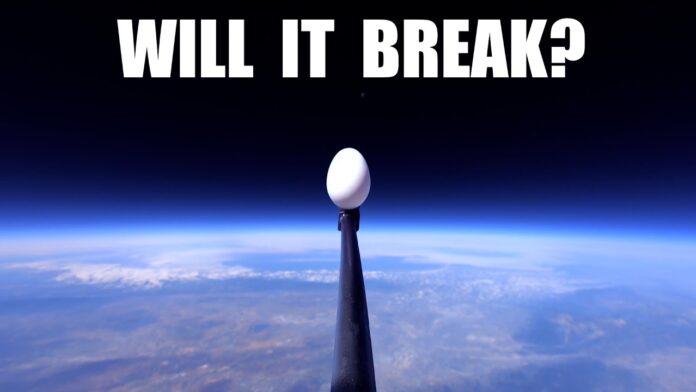Former NASA engineer Mark Rober recently embarked on a daring and fascinating experiment: throwing an egg safely from space, all while documenting the entire process on video. Rober described the experience as the most “physically, mentally, and financially draining” video he had ever created, but the results were well worth it.
To achieve this goal, Rober and his team broke the problem down into smaller components. They began by calculating the terminal velocity of an egg, which was determined to be 75 mph. Through extensive testing, the team found that a mattress could protect an egg even if it’s traveling faster than its terminal velocity, allowing them to build a target mattress area in a small town to catch the egg when it returned from space.
However, after testing, the mattress plan proved unsustainable, and Rober and his team pivoted to a device with a parachute that could safely land the egg back on Earth. They attached the egg to a rocket, which was connected to a weather balloon that would transport it into space. Once the weather balloon released the rocket, it accelerated towards Earth and broke the speed of sound. The four fins on the back of the rocket steered it to the correct location to land on the intricate device.
Rober worked alongside Joe from http://BPS.Space, a self-taught expert in rocket building. Together, they added heating elements surrounding the egg to ensure it did not freeze in space. The elements were designed to fall off before the egg landed back on Earth. The suspense leading up to the experiment’s conclusion was palpable, but ultimately, the intricate device worked, and the egg landed safely.
The experiment showcased the incredible capabilities of science and engineering, pushing the boundaries of what is possible. Rober’s team successfully threw an egg from space, proving that with ingenuity, problem-solving skills, and teamwork, anything is possible. This achievement serves as a reminder that innovation and scientific discovery can inspire and educate us all.


